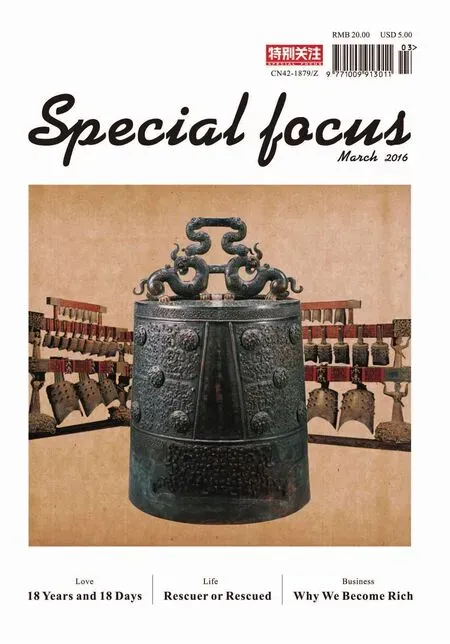Romantic Cures in Compendium of Materia Medica
By Wu Liyang
Romantic Cures in Compendium of Materia Medica
By Wu Liyang

S ubtleness is everywhere in ancient Chinese books.Even in Compendium of Materia Medica[1],traces of sex were hidden that mesmerize the soul and keep it away from loneness.
Breast milk was called“wine of god”in Volume 52-The Category of Human, and was described as“an exquisite invention of nature,which allows humanto be fine and pleasant”.Volume 36-The Category of Woods portrays the unique use of belt.“If a woman is suffering from a difficult birth,burn a five-inch piece of her husband’s belt into ash and serve it with wine.”And the column concerning combs appears to be more romantic:“Ifaman’surethrais blocked,burn a wooden comb of a widow into ash and serve it after boiling. For frequent urination and micturition pain,burn a wooden comb which has been used for years and keep the ash. Serve it with cold water.The patient should choose the comb from the opposite gender.”
With these descriptions in a monumental pharmaceutical book,the dogmatic morality seems frail.It is not clear whether a wooden comb can be considered as herb.Even if it can,why does it have to be a widow’s or served to the opposite gender?Someone may argue that there is no scientific basis.However,life must be tedious if everything is required to have scientific basis.Besides,it may have some psychological basis.
Such examples can be often found in professional pharmacy books.It is interesting that those kind-hearted medical specialists also have such sense of romance.Maybe it is the result of oppression of old-fashioned moral code.It is morbid and can be considered as fantasy,retrospection,interior monologue and free imagination by the author,Doctor Li Shizhen.
In contrast with the romantic Doctor Li,poet Meng Jiao held an opposite point about sex and love.He wrote“One cannot approach a sword or a beauty.A sword can hurt your hand while beauty can harm your health. Rugged roads can destroy wheels in ten rounds.Lust can sap one’s vitality over one night.”
Compendium of Materia Medicais really a fancy book full of subtleties. Thoselinesof romanceallowhuge space to savor,not to mention the art of medicine and the profound natural science.
Note:[1]A Chinese medical masterpieceonpharmacy,writtenbyLi Shizhen(1518—1593),a very popular doctor in Chinese Ming Dynasty,published in 1590.
(FromMarks on the Book,the Commercial Press.Translation:Zheng Yi.Illustration:Chen Quansheng)

